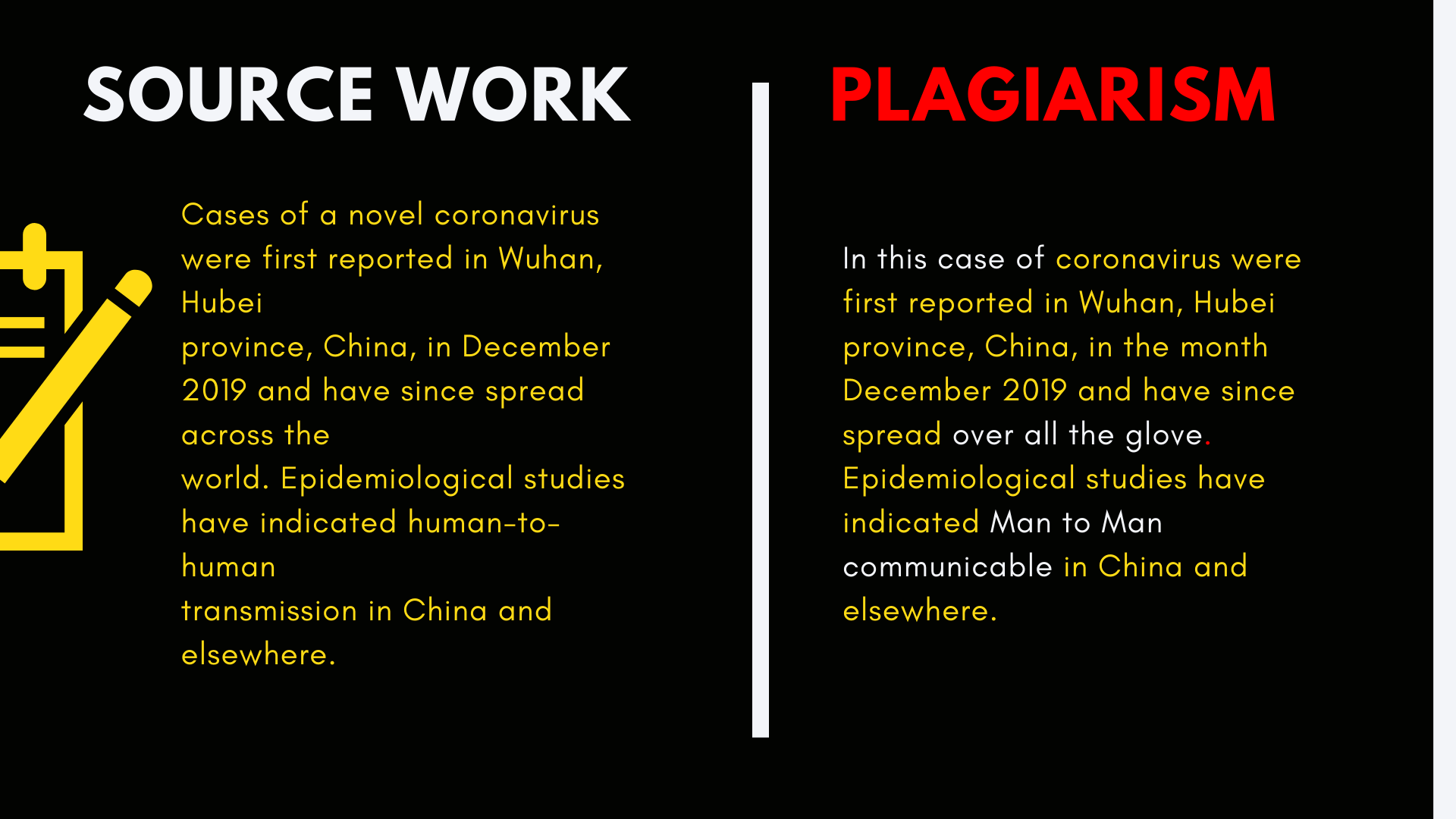Copyright infringement can, in fact, constitute criminal behavior, as opposed to a civil infraction, and sometimes even rises to the level of a felony. Also, one can violate both with one action. Put simply, plagiarism is the act of using another’s work or ideas and not giving proper credit, instead falsely presenting it as the user’s own. It is an ethical issue involving a claim of credit for work that the claimant did not create. Web criminal charges can also be pressed on infringers of trademarks and copyrights if the ip owners lodge a complaint with the ministry of domestic trade and cost of living.
Web copyright infringement refers to the unauthorized use, reproduction, or distribution of copyrighted materials without permission from the copyright holder. Plagiarism is a form of copyright infringement. Plagiarism and copyright infringement are often considered synonymous. Web plagiarism ≠ copyright infringement.
Web plagiarism, in turn, is a type of copyright infringement, in which a person presents the original ideas of another person as one’s own or fails to reference the author. Plagiarism means using someone else’s work without giving them proper credit. The most widespread and also detectable cases of plagiarism occur in writing.
Types of Plagiarism Plagiarism Library at American National University
What are Plagiarism and Copyright? YouTube
How to Avoid Plagiarism and Copyright Infringement in 6 Ways
10 Types of Plagiarism Every Academic Writer Should Know Updated
Explain the Difference Between Plagiarism and Copyright Infringement
This blog post discusses additional differences between the two and provides examples of each type of improper use. Web copyright infringement is the unauthorized use of another person’s original creative works, which includes literary, artistic, musical, or other types of content protected by copyright law. Plagiarism and copyright infringement may have some overlap, but they are discrete considerations. Web plagiarism, in turn, is a type of copyright infringement, in which a person presents the original ideas of another person as one’s own or fails to reference the author. One can plagiarize someone else’s work regardless of the copyright status of that work.
Plagiarism is best defined as the unacknowledged use of another person’s work. Web plagiarism is a form of academic misconduct that occurs when you represent the work and/or ideas of another person as your own, original work. Web plagiarism is not a criminal offence.
Web How Is Copyright Related To Plagiarism?
It is an ethical issue involving a claim of credit for work that the claimant did not create. Copyright infringement is using someone else’s work without their consent. Even if a work is properly cited and. If it’s plagiarism, it must be copyright infringement, and vice.
Copyright Infringement Can, In Fact, Constitute Criminal Behavior, As Opposed To A Civil Infraction, And Sometimes Even Rises To The Level Of A Felony.
However, the act of plagiarism can infringe the intellectual property rights of others and can lead to legal action for ‘copyright infringement’ ‘or ‘trademark infringement’, which in turn can bring about legal charges, significant costs and reputational damage. Although they’re often used interchangeably, plagiarism and copyright infringement actually represent two different facets of intellectual property. Legal consequences can include fines, damages, and injunctions against further infringement. Web plagiarism, in turn, is a type of copyright infringement, in which a person presents the original ideas of another person as one’s own or fails to reference the author.
It Is The Violation Of The Exclusive Rights Granted To A Copyright Owner, Which Are Reproduction, Distribution, Performance, And Display Of The Work.
Plagiarism means using someone else’s work without giving them proper credit. ( tech law journal) plagiarism is using someone else's work or ideas without giving proper credit. With the absolute explosion of digital content (both production and consumption), plagiarism and copyright infringement have become increasingly intertwined and important. On the other hand, plagiarism is primarily an ethics breach related to academic and creative integrity.
Web Copyright Infringement Is A Violation Of Intellectual Property Laws.
The most widespread and also detectable cases of plagiarism occur in writing. Plagiarism is the act of presenting someone else’s work, ideas, or words as one’s own without giving proper credit or acknowledgement. Avoiding plagiarism is essential for academic scholars and professional writers. Web copyright infringement is the unauthorized use of another person’s original creative works, which includes literary, artistic, musical, or other types of content protected by copyright law.
How can i avoid it? With the absolute explosion of digital content (both production and consumption), plagiarism and copyright infringement have become increasingly intertwined and important. On the other hand, plagiarism is primarily an ethics breach related to academic and creative integrity. Web is plagiarism a form of copyright violation? Traditionally, the two notions of plagiarism and copyright infringement have been associated with one another.






